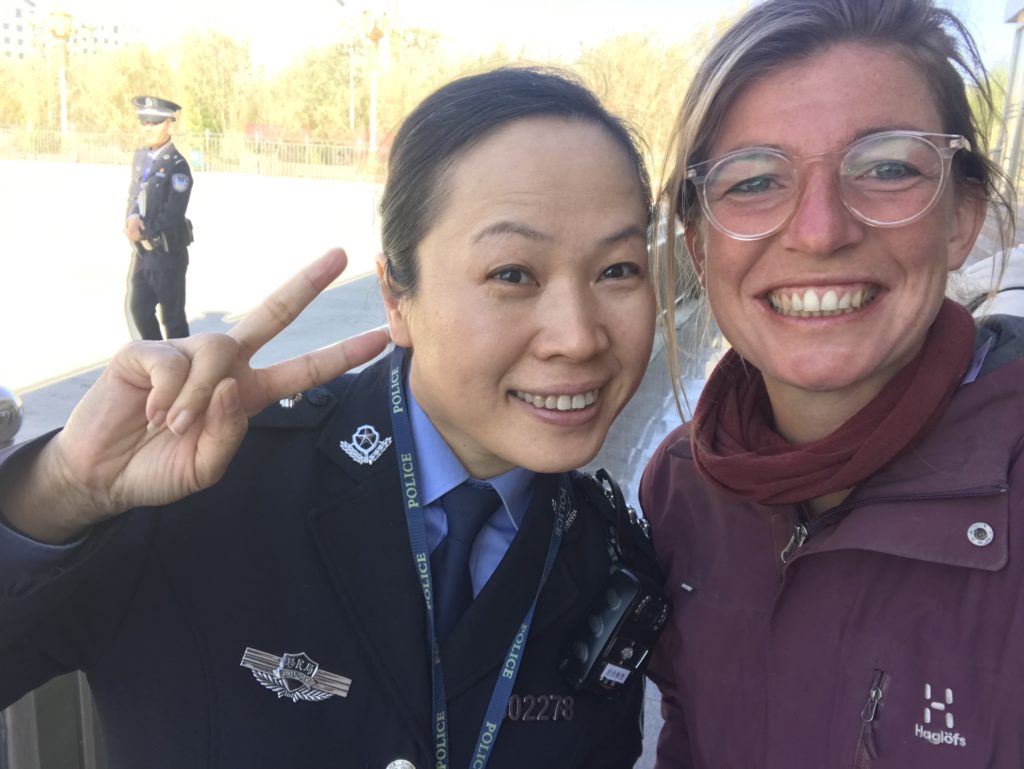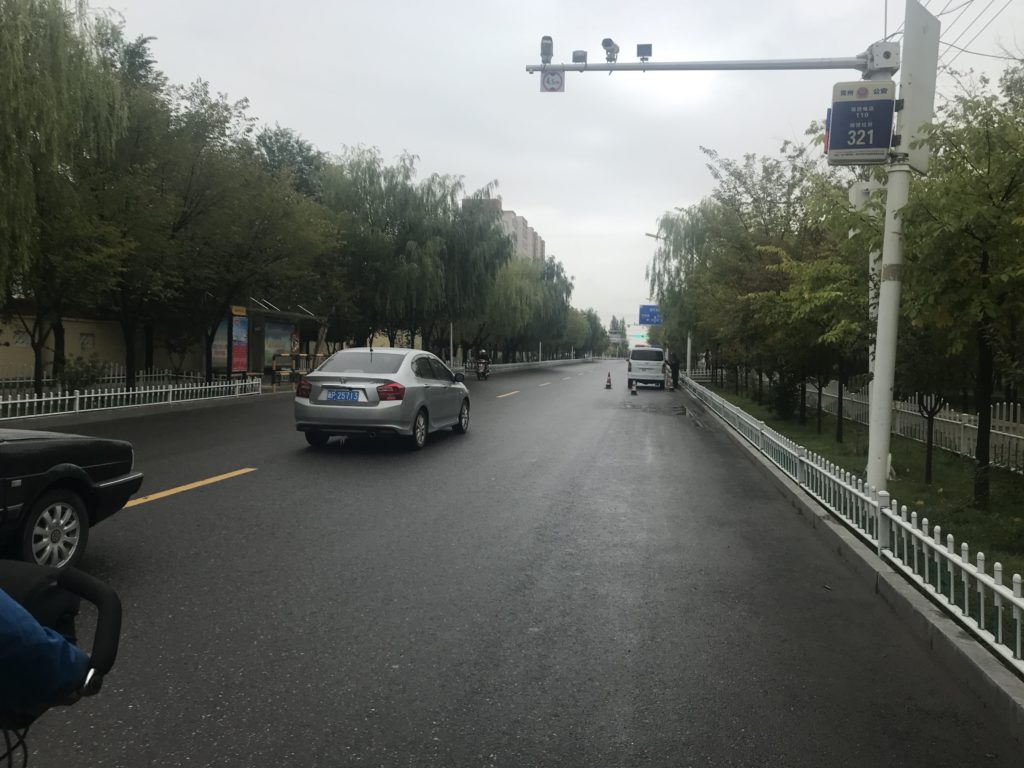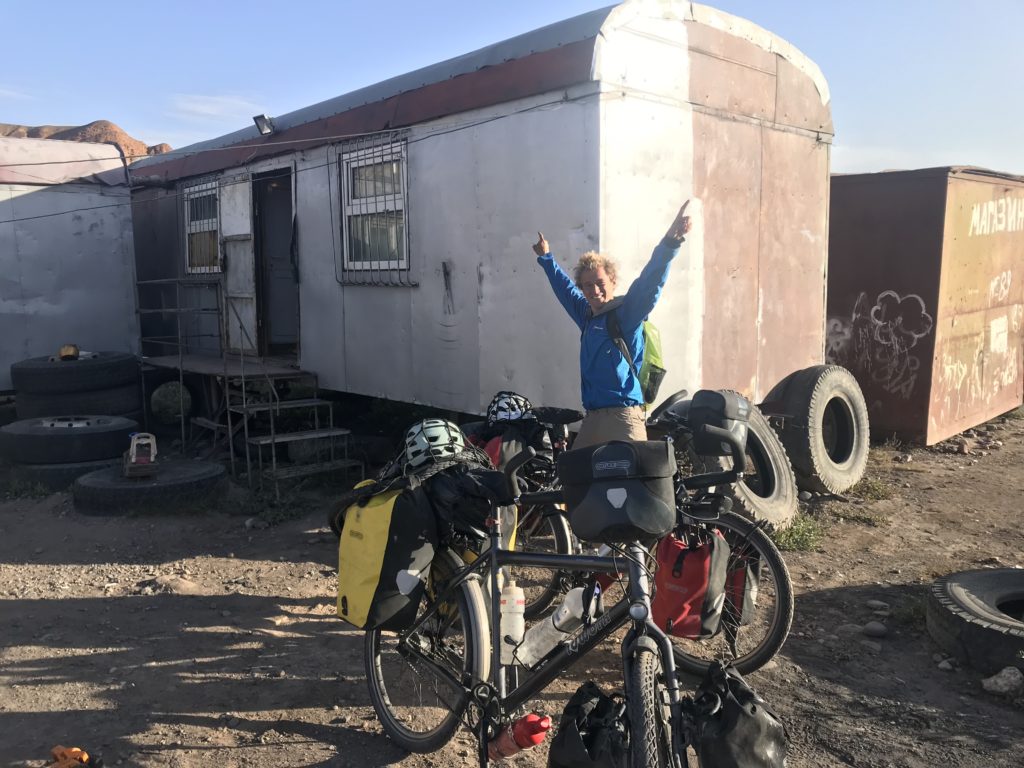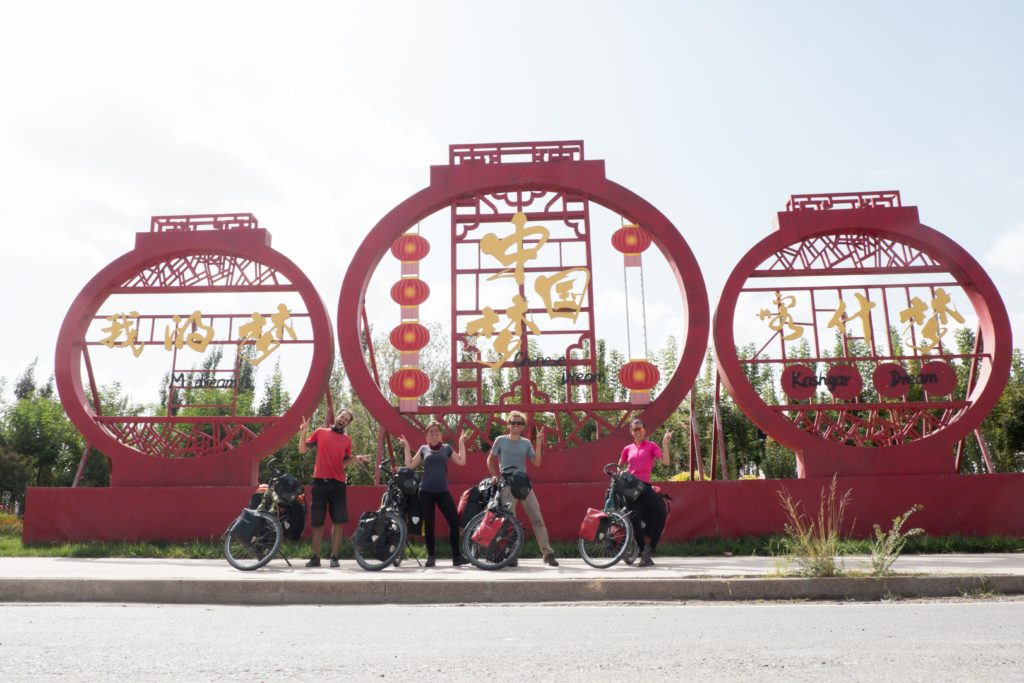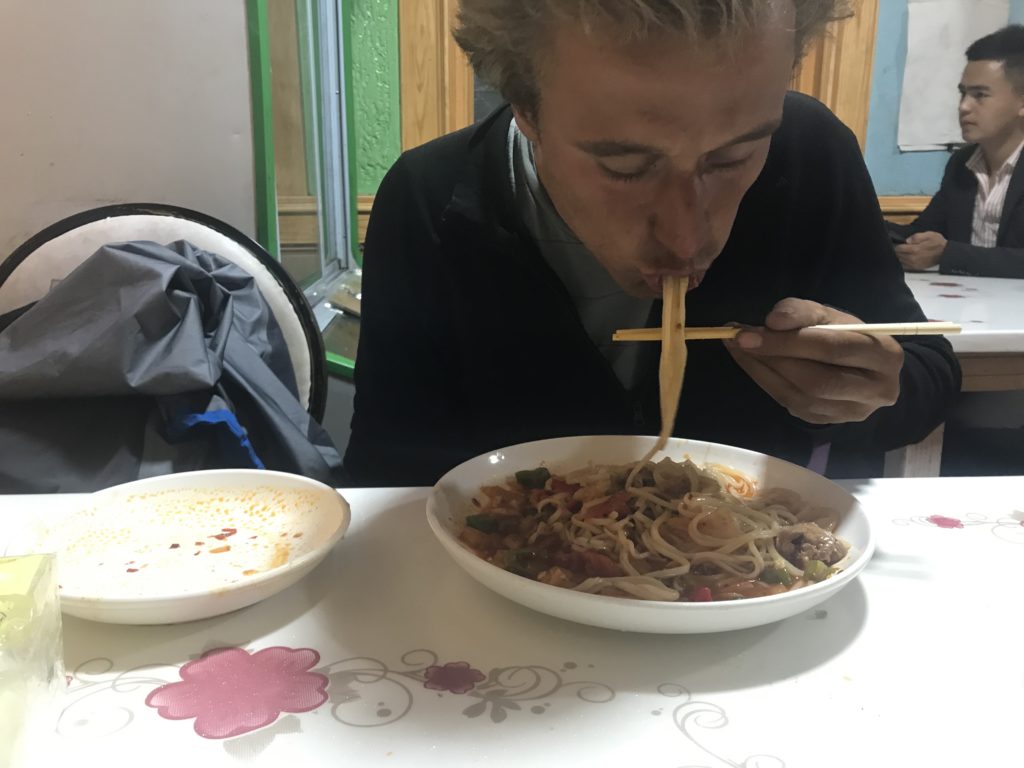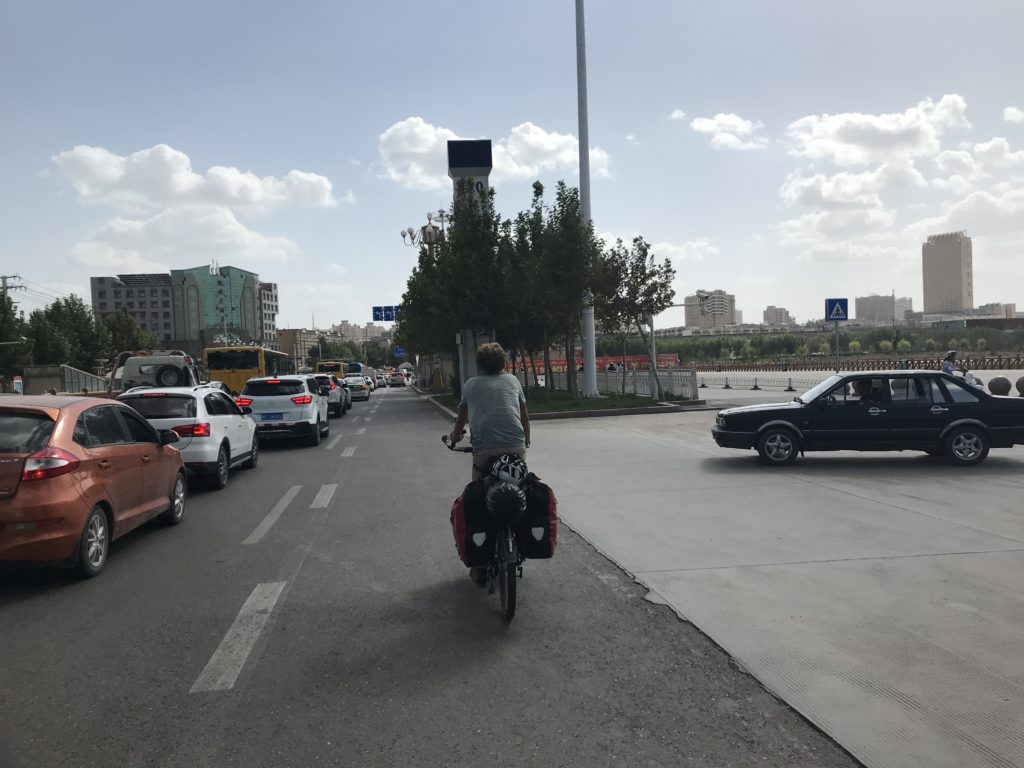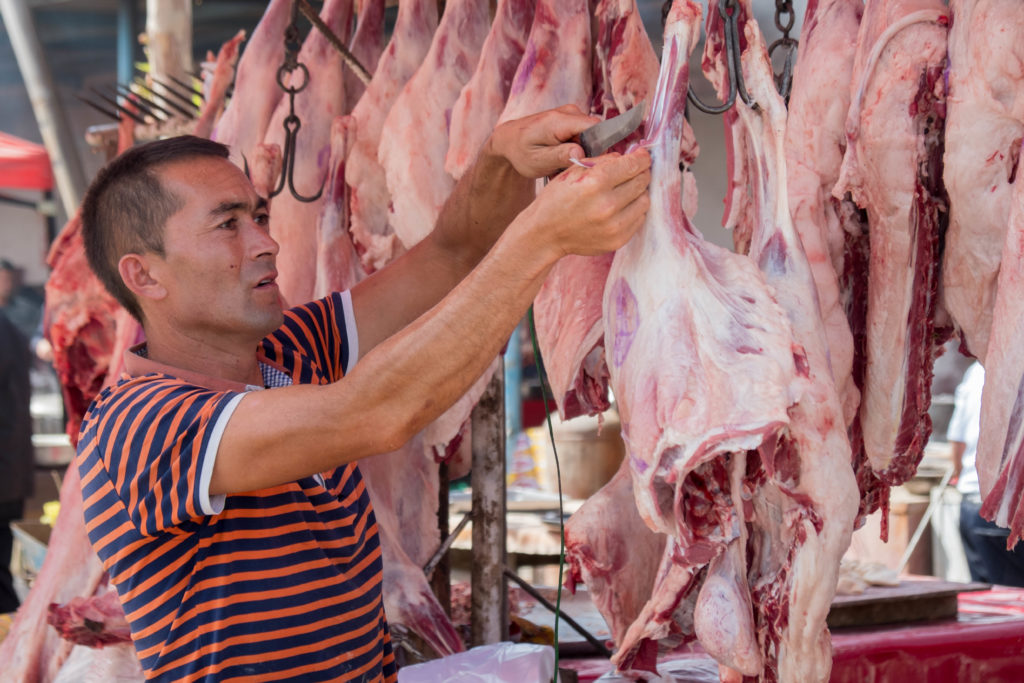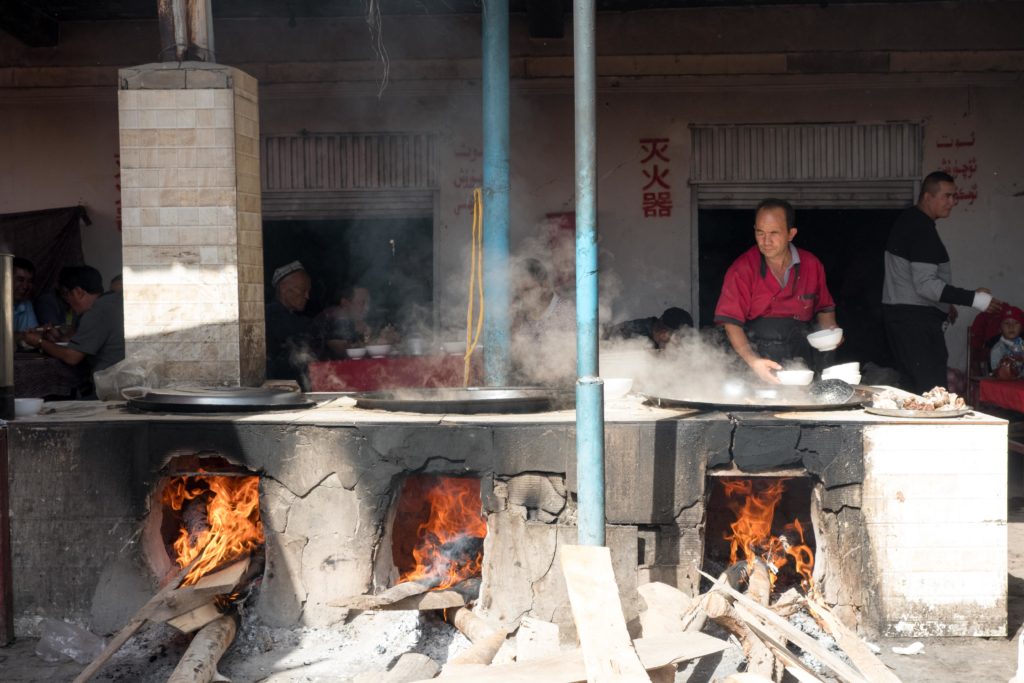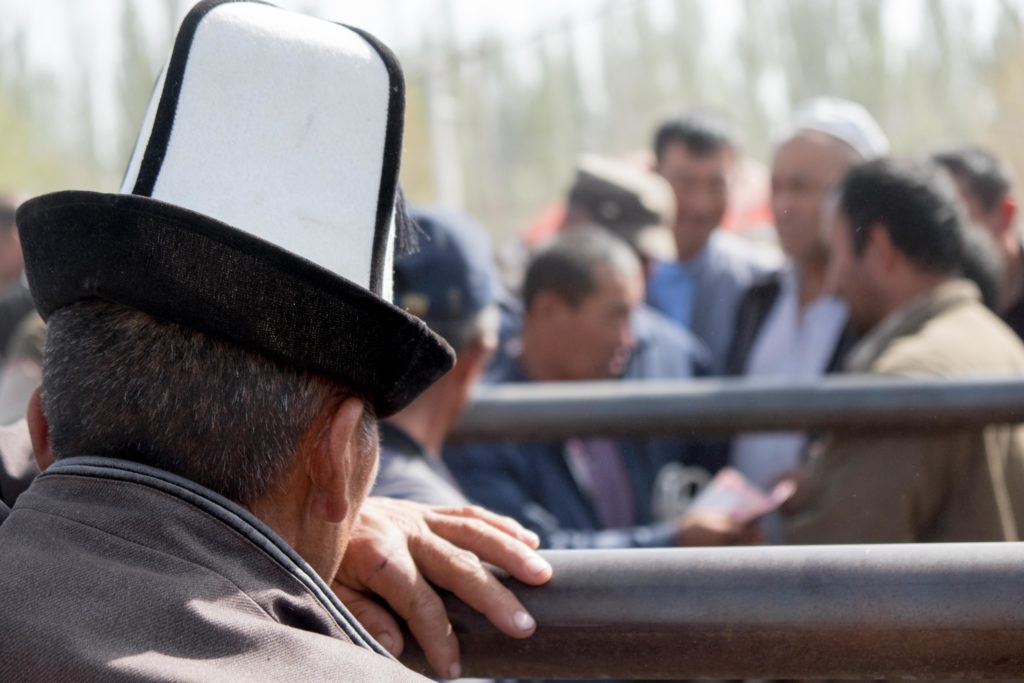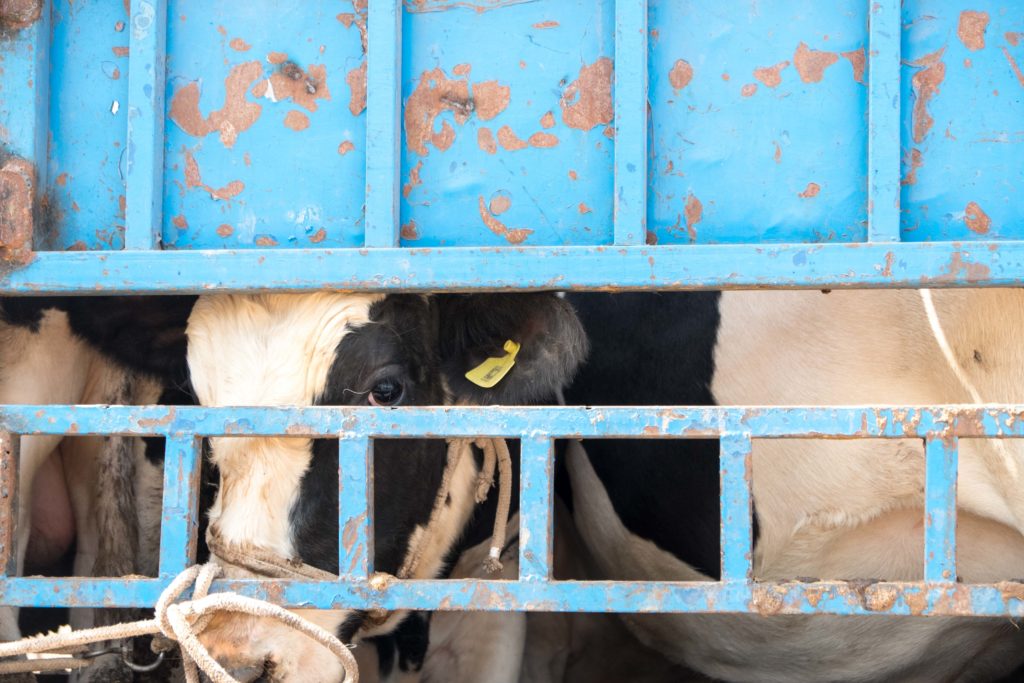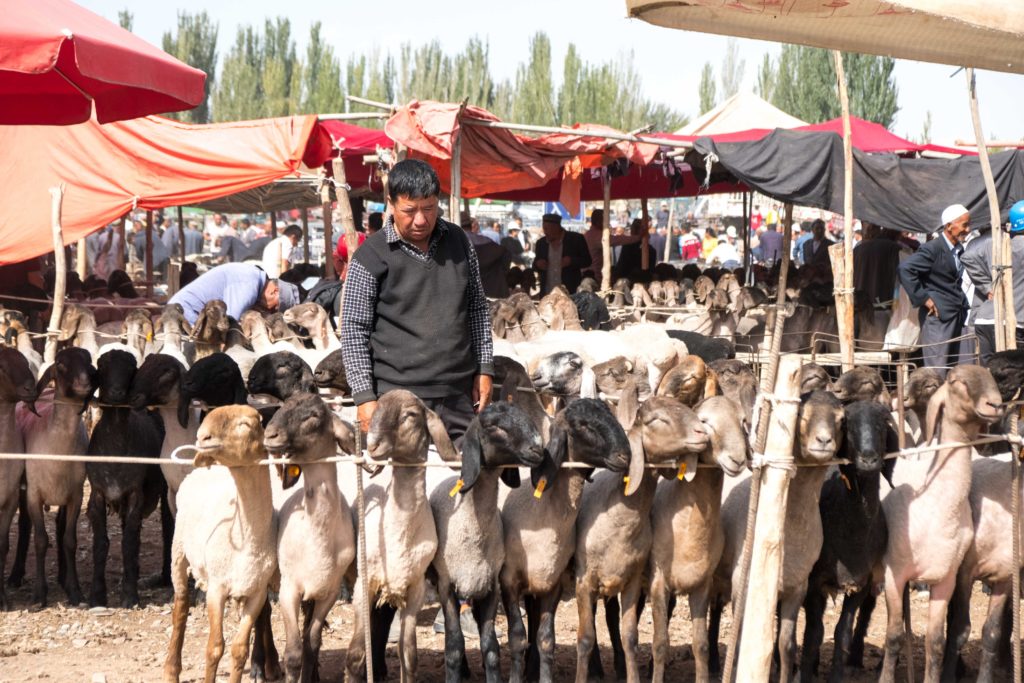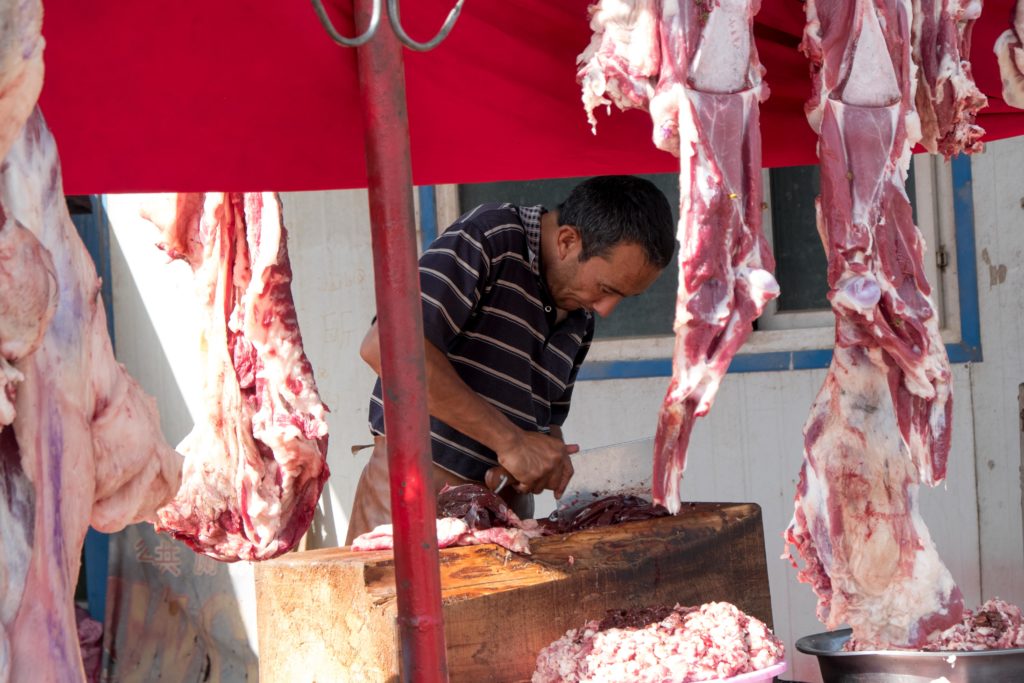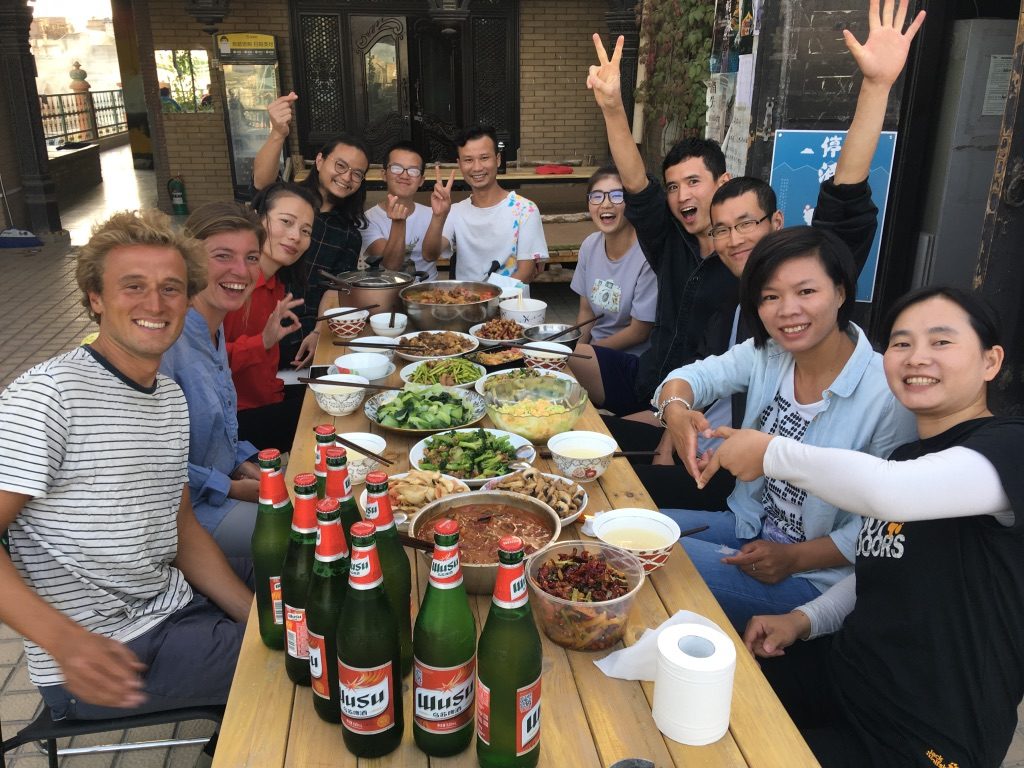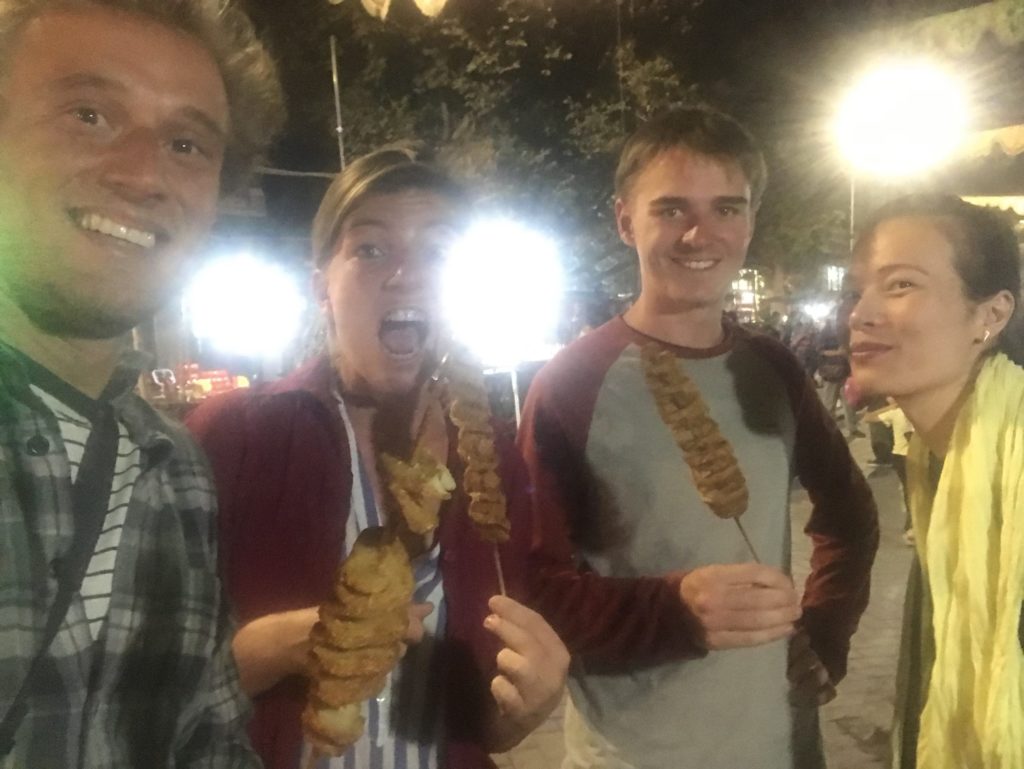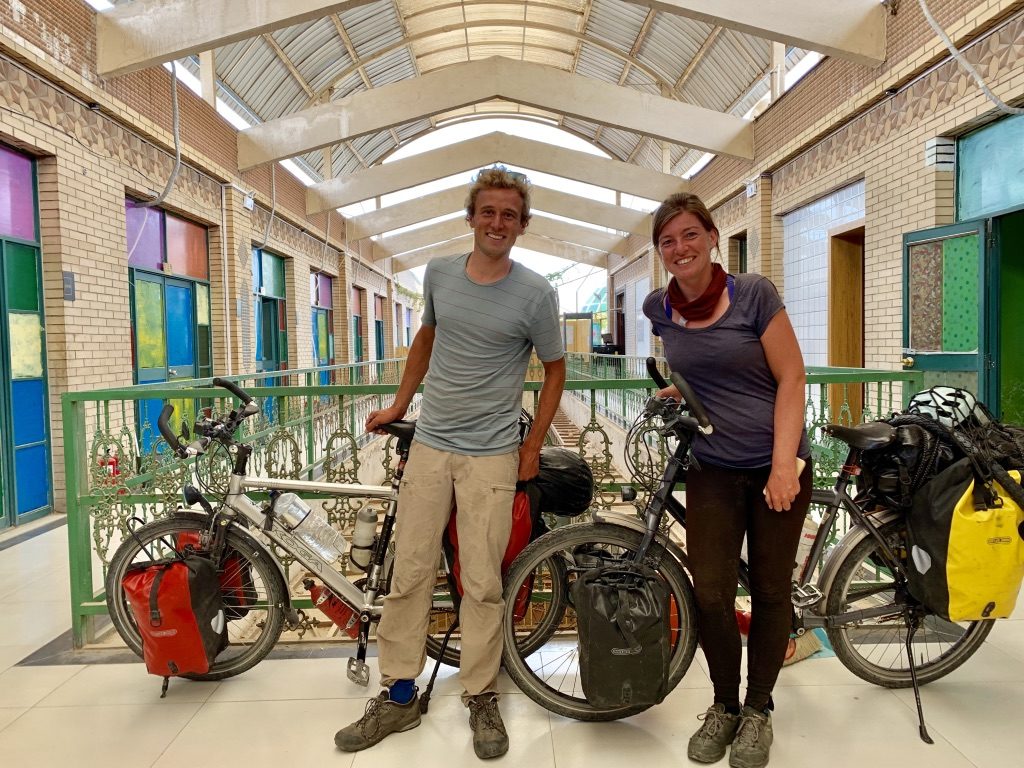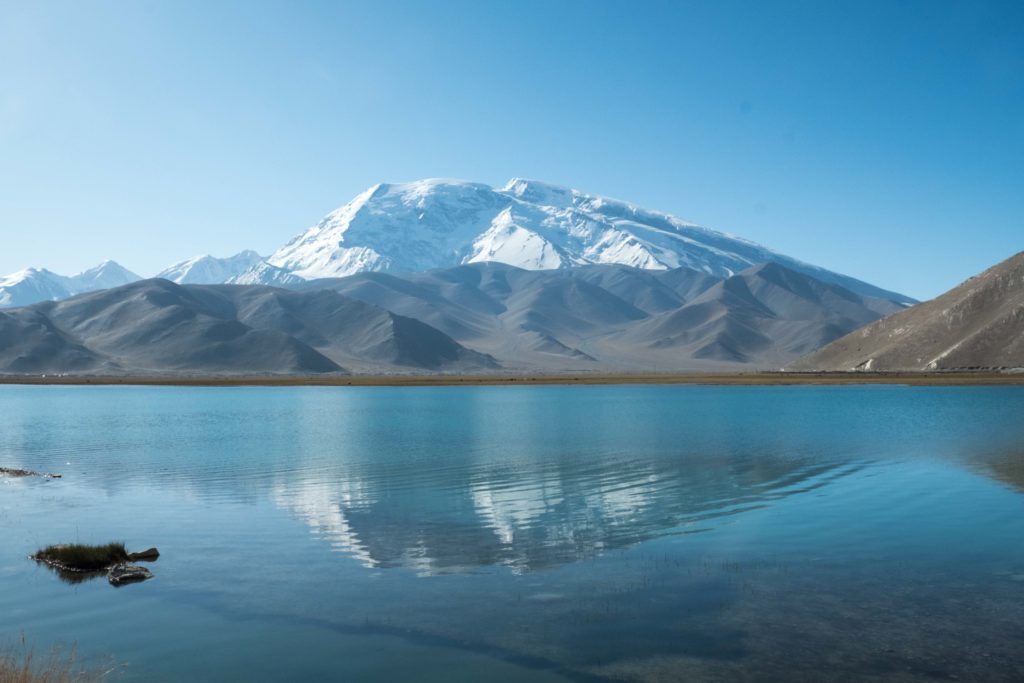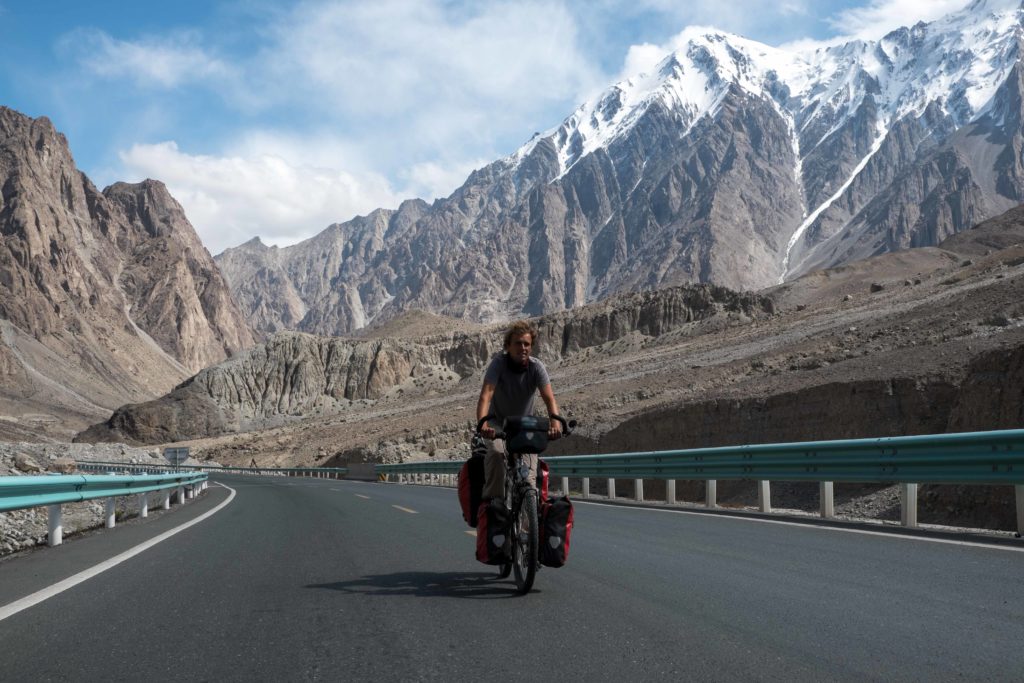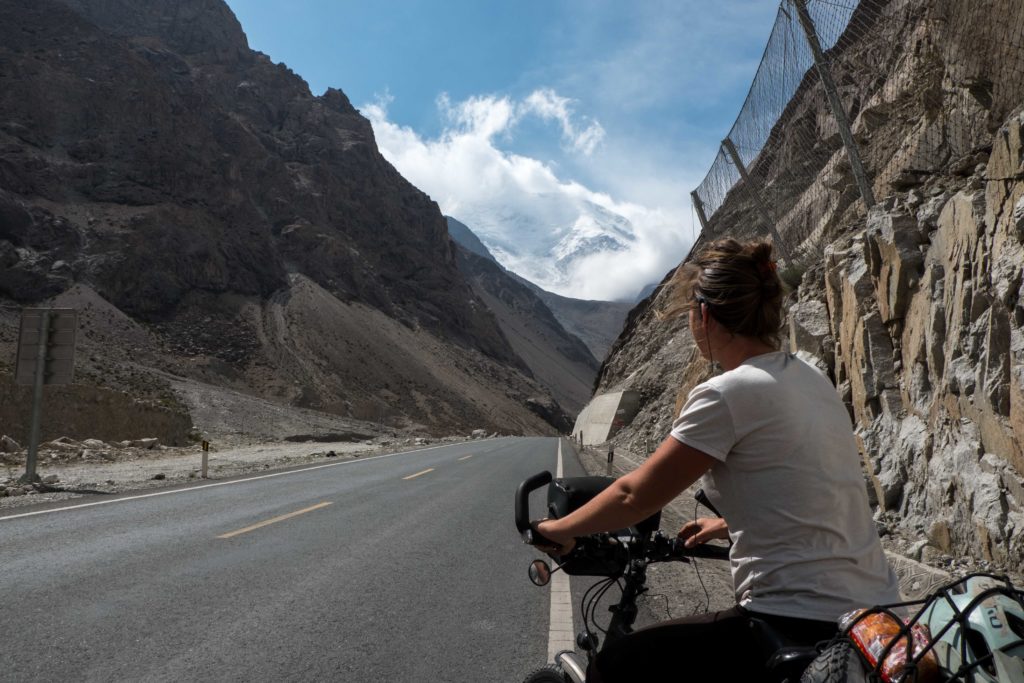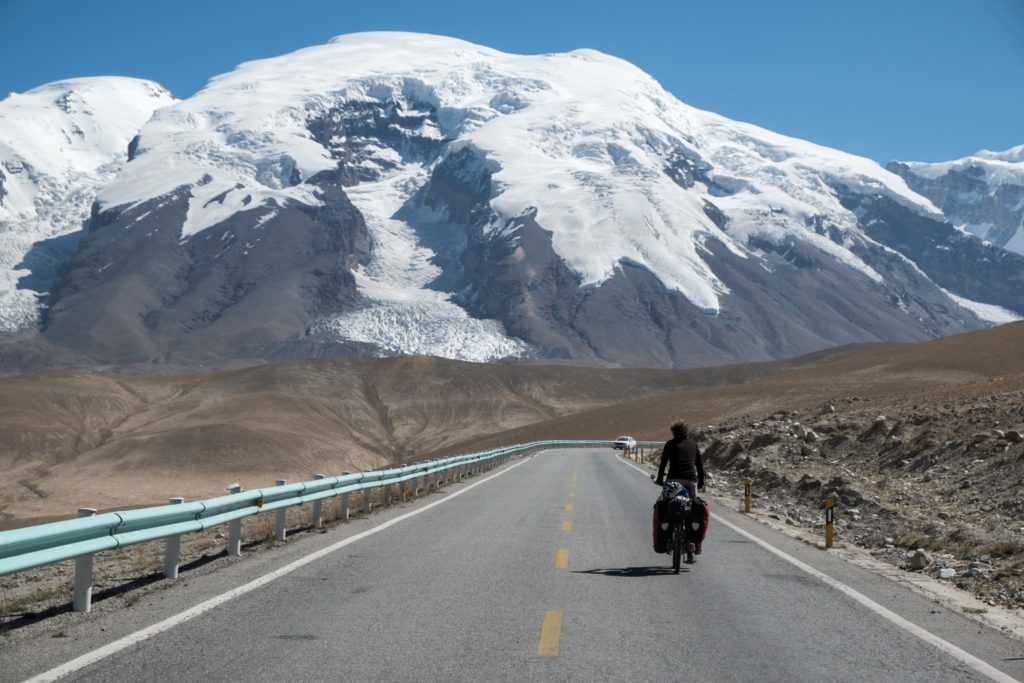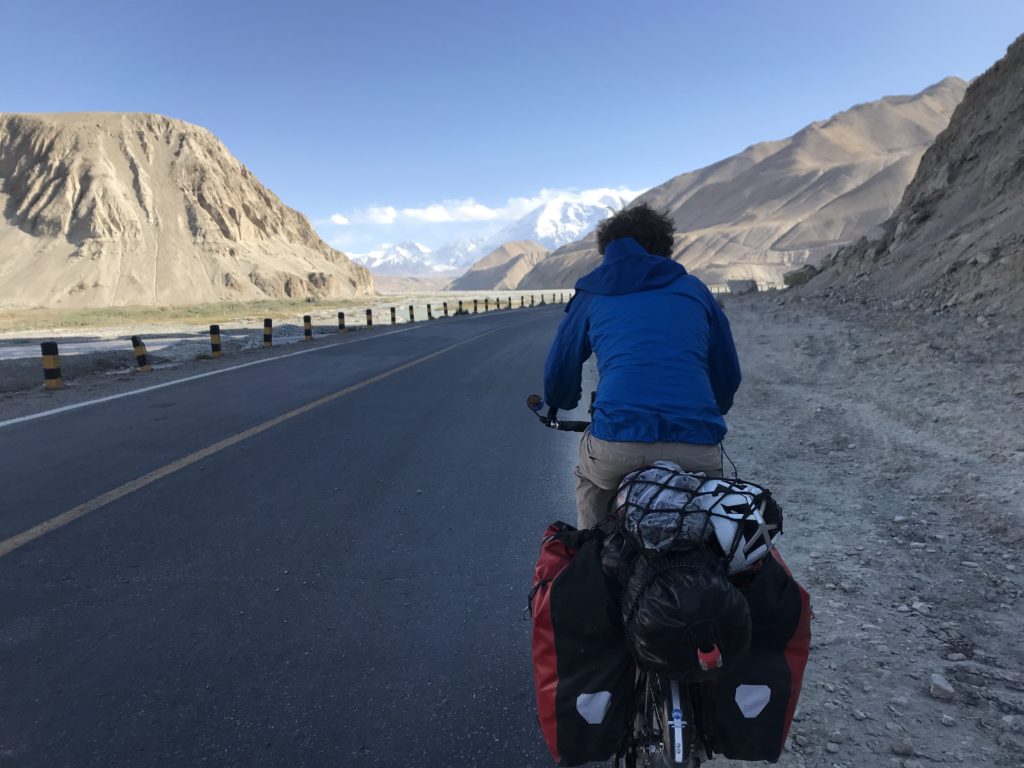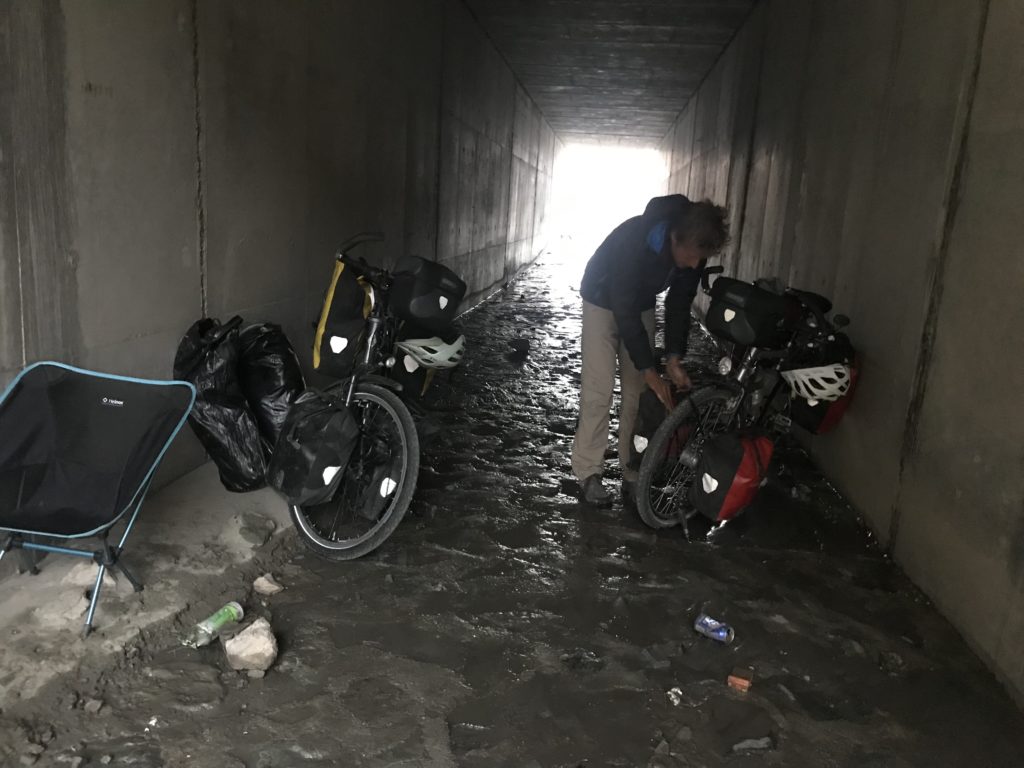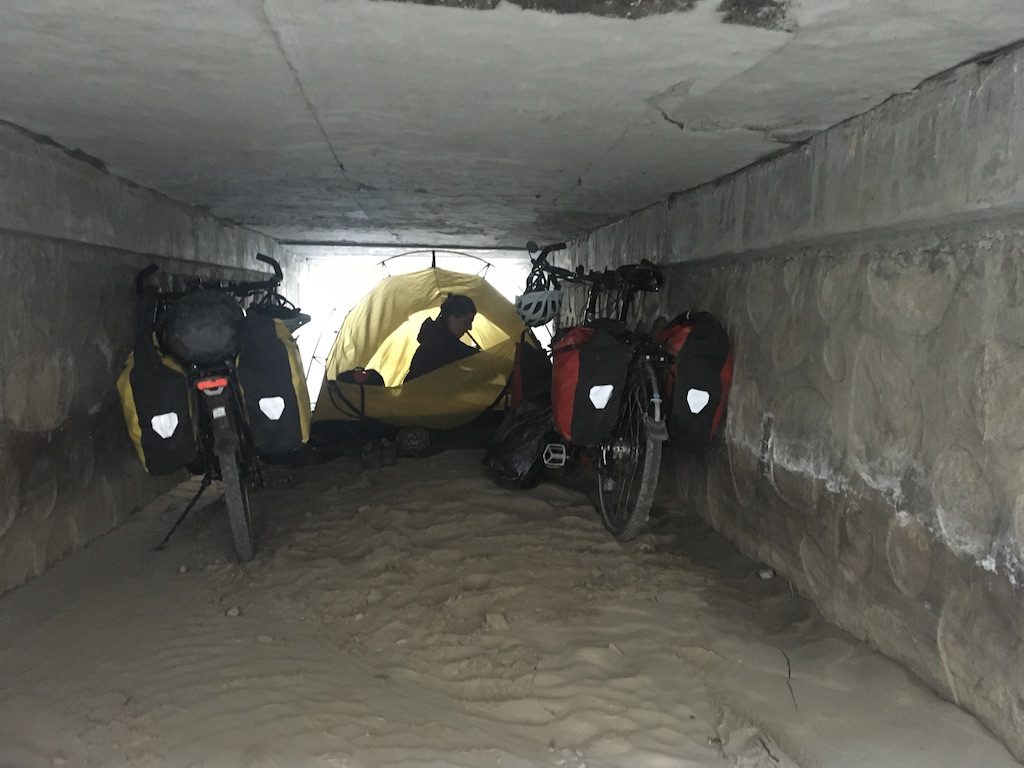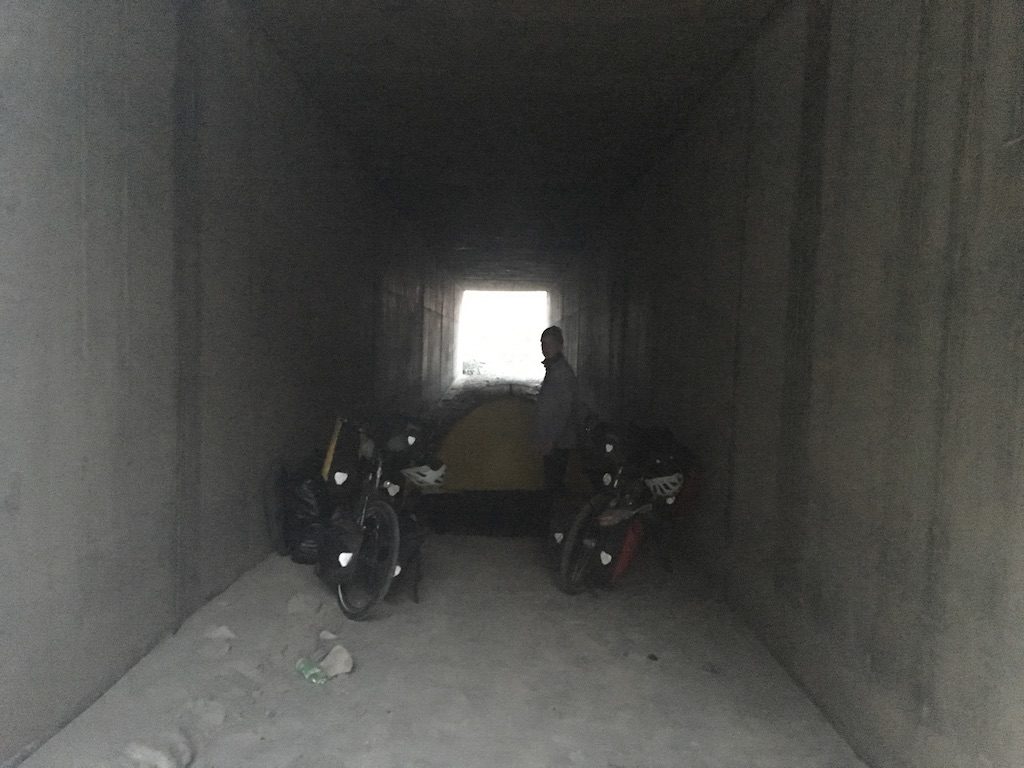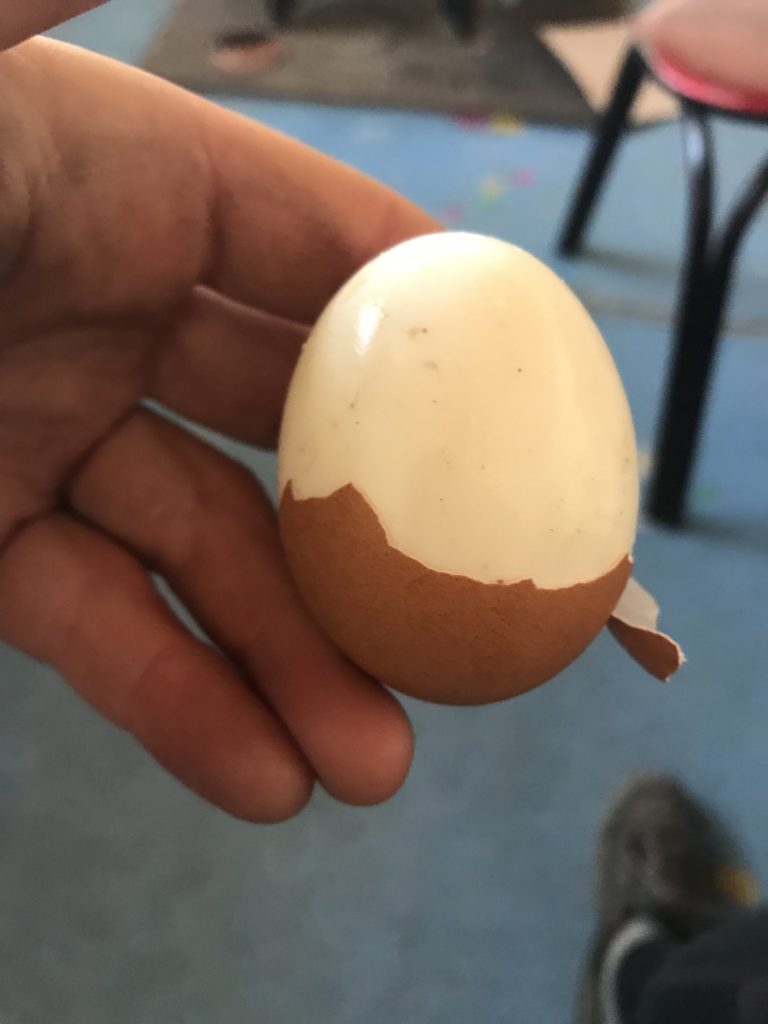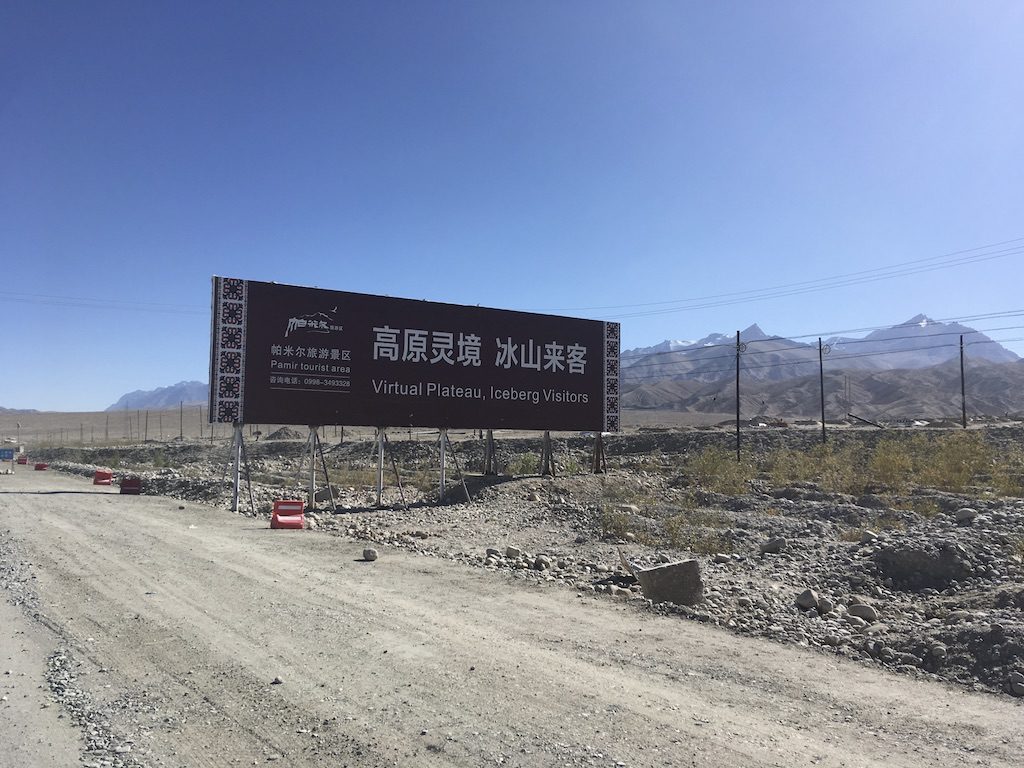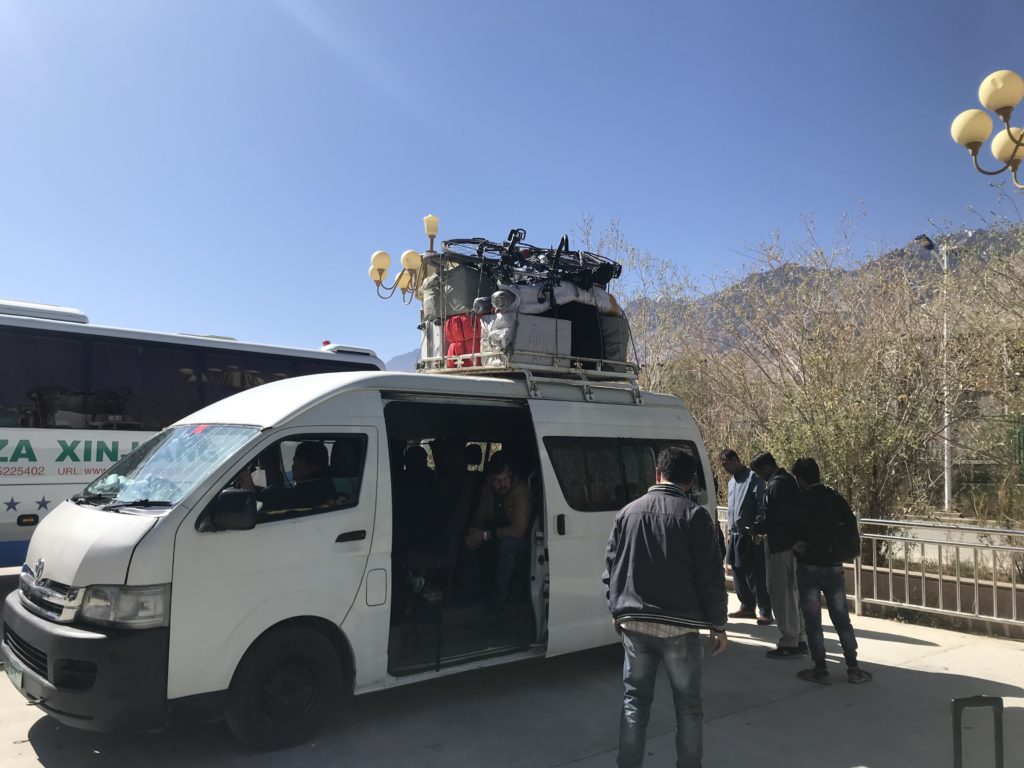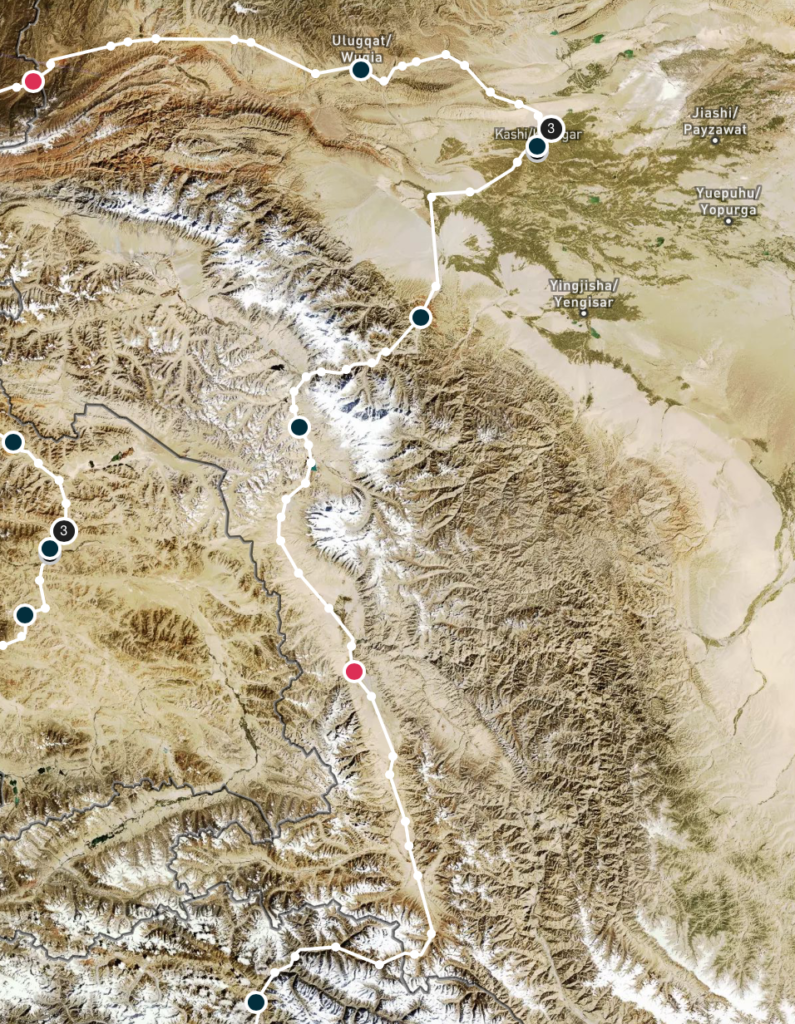Ulugqat (CN) – Tashkurgan (CN) / 10560 km / 5.15 Million Turns / September 12th – September 19th, 2019
“Excuse me, but what is this??” the border guard asked somewhat amazed and pointing to the video on Sabine’s phone. “Uhhh, ah yes.. that is uh.. me.. shooting a hunting rifle 🙂 ?”….
The border from Kyrgyzstan to China could be nominated for ‘most stringent and stressful border cross in the world’. A (small) sneak peak of what can be expected: Once exiting Kyrgyzstan (a one-minute procedure), you’ll enter the People’s Republic of China. Here, the word privacy is non-existent. As such, border guards will go through all pictures on your phone and camera (yes, all pictures, not some, not many, all, even if it’s as many as 12.000 as on our iPhones). Things that will most likely get you into trouble: Pro-Hong Kong memes, Dalai Lama pictures, anything relating to Islam, and guns. As we heard about some other cyclists who were interrogated for 16 hours because a friend sent him some funny Hong Kong pictures via Whatsapp a year ago, we carefully went through our photos to delete anything that might be suspicious. Of course, we did not consider that exactly on that day we posted an Instagram story as promo for our latest YouTube video about Turkey, in which Tom was shooting the hunting rifle of our host Hasan Ali for fun. Perfect timing to have this video as the very first one popping up! Fortunately the guard was not really impressed by Tom’s shooting skills and indeed believed it was his first time shooting and he was not a terrorist or secret agent entering the country. Phew…
China, in terms of bureaucracy is a peculiar country. On paper it’s strict, in practice often too, but once you ‘break the ice’ with the officials they are actually really friendly. When one of the border guards was looking at our Cappadocia pictures, he stopped scrolling, so we were a little stressed (anything wrong with photographing hot-air balloons, sir?). Turns out we was just a big fan of Turkey and loved this place. Once all the bag-checks, interviews through a Chinese translate app and waiting was over, we were ‘free’ to cycle in this vast country that is almost a continent in itself. Of course ‘free’ in this part of China, Xinjiang, means something completely different than in other countries.
Xinjiang is home to a large population of Uyghurs, a Muslim minority, culturally and ethnically more connected to the Turkic people of Central Asia than to the Han Chinese. Over the last few years, this region has become a real-life version of Orwell’s 1984, with facial recognition camera’s recording every movement, heavily armed policemen on every corner and a complete lack of freedom to move, think or speak out against anything not in line with the wishes of the government. This blog may not the best place to give you a full description of what is happening here, but please read up at e.g. Amnesty, NOS or The New York Times to get to know more.
Foreign tourists are formally welcomed to visit the area, but informally they see you leave rather today than tomorrow. We were only allowed to stay in specific ‘foreigner’ hotels. The afternoon we entered China, we were escorted by seven policemen in bulletproof vests and Tasers (for our own protection of course) to a hotel which supposedly had a foreigner permit. Ironically, even the police did not really know which hotel had this permit, so we ended up being escorted back and forth through the town, quite to our amusement. The 6th hotel we tried (also the 3rd, but when we tried then it was not allowed) was a success. We were allowed to spend the night, how hospitable! Of course, we did get a knock on the door of our best new friends the police at half past 9 to ask once again if we will leave tomorrow. “Yes, my dear policemen, we will leave your city as soon as possible, now please let us have some rest.”
It was a bit surreal to spend our night in this place. We read about it in the news of course, but now with all the cameras in your face, police suspicious about anything and tracking every movement, you get a (very slight) hint of why freedom is actually so valuable. We could not even go into the supermarket without a thorough passport check.. Oh Kyrgyzstan, where are thou? The contrast between these two countries in terms of freedom for us as tourists was huge.
The next day we rode from the border town Ulugqat to the city of Kashgar, which fortunately was a bit more relaxed in terms of police presence. Yes, they were still everywhere, but not escorting tourists directly. In Kashgar we visited the famous livestock market and the night market, where we finally could splurge again on food again after Central Asia. The day we arrived turned out to be a big Chinese holiday (Mid-Autumn day) so we were invited by the hostel staff for a celebratory dinner. Forget the ‘no. 148’-Chinese dishes of Holland, the Chinese food in China is fresh, spicy, crunchy, remarkable, but overall extremely rich in flavours and textures. It was a delight after 2 months of mostly omelettes, bread and potatoes.
The manager of this hotel turned out to be a cyclist himself! When we showed up, he immediately wanted to take a picture together with us, expressed his admiration and treated us on free beer. We were treated like celebrities! When asking him what cycle trips he had made, he was quite a humble man: “Only around China”. We only fully understood what he meant when he showed us his travel map. Around China indeed. Literally! He cycled along the entire border of China, a trip of 2 years and 30.000 km!! And if that was not enough, he decided to walk from Beijing to Lhasa too. I guess we should have treated him as a celebrity instead of the other way around.
From Kashgar the plan was to go to Tashkurgan, the most western city in China and near the border with Pakistan. It is actually only a very small section you cycle in this country, but in China, even a very small section is still over 300 km long. As the Chinese police does not allow you to camp on this stretch and hotels are quite sparse, cycling is made quite difficult. The bus is also no option, we found out the hard way, as it’s only small minibuses that go and taking along our bikes is physically impossible. So, we bit the bullet and decided to cycle anyhow and think of a camping plan along the way.
The scenery was beautiful, and we slowly climbed up from Kashgar (1000 m above sea level) to the pass of 4000 m. The mountains were again higher than ever before, now reaching 7500m! We had been in touch with other cyclists who rode this stretch and got some good tips on how to make camping here a success. Camping is easiest done in water underpasses underneath the highway, and checkpoints should only be crossed way before sunset, otherwise the police might follow you to make sure you’re not camping. Collecting all our stealth skills, we went for many ‘pee breaks’ to check out potential camping spots and when no cars passed quickly hid under the road for the night.
Murphy’s law however is also applicable in China it seems. Exactly the first night we were camping in a concrete tunnel under the road, a thunderstorm went right over us in the middle of the night. Sabine was the first to wake up and saw some small water streams passing the tent. Waking up Tom at 4.30 (who was still in a coma), he somewhat mumbled “all is okay, please go to sleep, and don’t worry”. Of course, 15 minutes later, when cans, bottles and other waste floated past our tent and the underside felt like a waterbed, even Tom was alarmed that this night unfortunately was limited to a short one. In the running mud and water, we quickly packed up the tent and found one dry square metre to await sunrise. Luckily we were just in time to keep our stuff dry, although our tent and ground sheet were now a few kilograms heavier due to sticky mud. Fortunately the next night, when also camping under a similar underpass, it remained dry, much to our delight. Only the fact that someone recently used the underpass as a place to relieve himself and left a ‘surprise’ under the sand right where we happened to pitch the tent was a bit less amusing.
Getting food along the way is sometimes tricky, especially vegetarian options for Sabine. We translated the Mandarin word for ‘egg’, but since everyone spoke Uyghur instead of Mandarin Chinese (and we didn’t know the Uyghur word), we in the end just showed a picture of an egg or imitated a chicken (which often resulted in many laughs or more i-don’t-know-what-you-are-doing-strange-foreigner headshakes and in fact often did not result in an actual egg on our plates).
We reached Tashkurgan after three solid days of riding and were happy we did not get into any trouble with the police. From here, we were obliged to take the bus into Pakistan. The bus itself turned out to be a hint of what’s to come in this country. Whereas Chinese are generally polite and friendly, there is little to no facial expression. We have seen little smiling or angry faces, all are quite neutral. On the bus however, full of Pakistani traders, it was a circus with laughs, fights, shouts and cheers. We got a small glimpse of the next country coming up!
More to come in our next blog!
Talk to you soon!
Tom & Sabine


